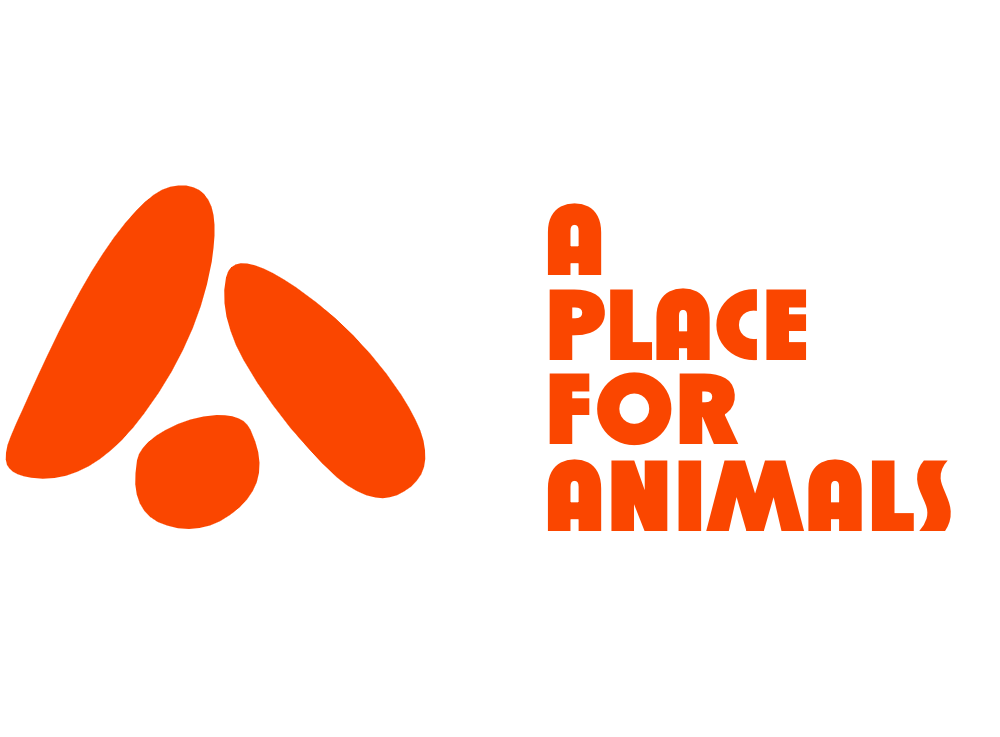Dogs
How to Choose a Good Name for Your Kitten
Craft the perfect name for your kitten with tips on considering personality traits, cultural influences, and more – find the ideal fit!

When naming your kitten, consider personality traits, appearance, ease of pronunciation, and cultural influences. Choose a name that reflects your feline friend's unique characteristics and strengthens your bond. Match names like Whiskers for curiosity or Luna for energy. Opt for simple, 1-2 syllable names like Tiger or Puss. Pick names that can grow with your kitten. Look to habits or quirks for inspiration. Make certain the name is easy to pronounce for clear communication. Let joy guide your choice. Make sure the name brings you happiness and connects you with your pet. The right name is essential for your kitten's identity.
Key Takeaways
- Consider kitten's personality traits like playfulness or curiosity.
- Reflect appearance, such as color, markings, or breed.
- Ensure name is easy to pronounce and distinguish.
- Incorporate cultural influences for added meaning.
- Choose a name that can grow with the kitten.
Factors to Consider
When selecting a name for your kitten, we should meticulously consider various factors to make sure it suits their unique personality and characteristics. The name we choose should resonate with their personality traits, whether they're playful, curious, or affectionate.
It's crucial to observe their appearance, considering their color, markings, or breed, to find a name that truly fits. Additionally, we must make certain the selected name is easy to pronounce and distinguish, particularly for young children or family members who interact with the kitten.
Cultural influences can also play a significant role in naming our furry friend, honoring heritage and adding an extra layer of meaning to their identity. By incorporating favorite shows, movies, interests, or associations into the name, we can create a moniker that brings joy to both us and our kitten, forming a special bond through a name that holds significance for all involved.
Personality Matching
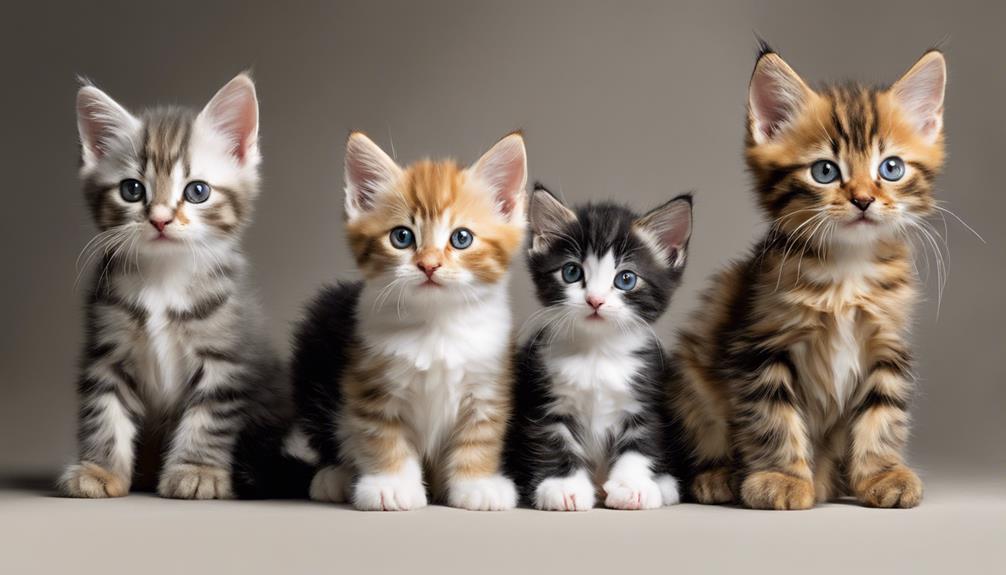
Matching your kitten's personality to the perfect name is essential for creating a strong bond and understanding their unique traits. When considering cat names, think about your kitten's playful nature. Names like Whiskers can suit a curious kitten who loves to explore and play.
For a feline friend with an energetic personality, options like Sparky or Luna can be fitting choices, reflecting their lively and spirited nature. If your kitten has a sweet demeanor, names such as Angel or Sweetie can emphasize their gentle and affectionate qualities.
On the other hand, if your kitten shows an independent streak, names like Maverick or Rebel might be more suitable, highlighting their bold and adventurous spirit. Additionally, for a mischievous little troublemaker, names like Bandit or Mischief can capture their playful side.
Consider these aspects of your kitten's personality when selecting the perfect name to truly connect with your new furry companion.
Naming Tips for Kittens
When naming your kitten, consider choosing a name that reflects their personality traits, such as Rascal or Princess. Additionally, popular kitten names like Tiger, Puss, and Smokey are commonly used and easy to remember.
Opt for short names with 1-2 syllables for quick learning, and select a name that can grow with your kitten to prevent frequent changes.
Personality-Based Naming
Considering your kitten's unique personality is essential when choosing a name that resonates with their traits and characteristics. Names like Rascal or Whiskers are perfect for playful kittens who love to romp around and explore.
If your feline friend is sweet and gentle, names like Angel or Cuddles may suit them well. For curious kittens who are always on the lookout for new adventures, names like Scout or Cleo could be fitting choices.
And if your kitten tends to get into a bit of trouble now and then, names like Mischief or Trouble might capture their mischievous spirit. Tailoring the name to your kitten's individuality will help strengthen the special bond you share.
Popular Kitten Names
Which popular kitten names are most suitable for your new feline companion?
When considering cat names, opting for ones with two syllables or less, like Tiger, Puss, Smokey, or Ginger, can help your kitten learn and respond quickly.
Involving the family in the naming process not only makes it a fun activity but also guarantees everyone feels connected to the chosen name.
Choosing names based on personality traits, such as Rascal, Princess, Fluffy, or Midnight, can be a fitting way to reflect your kitten's characteristics.
Inspiration From Behavior
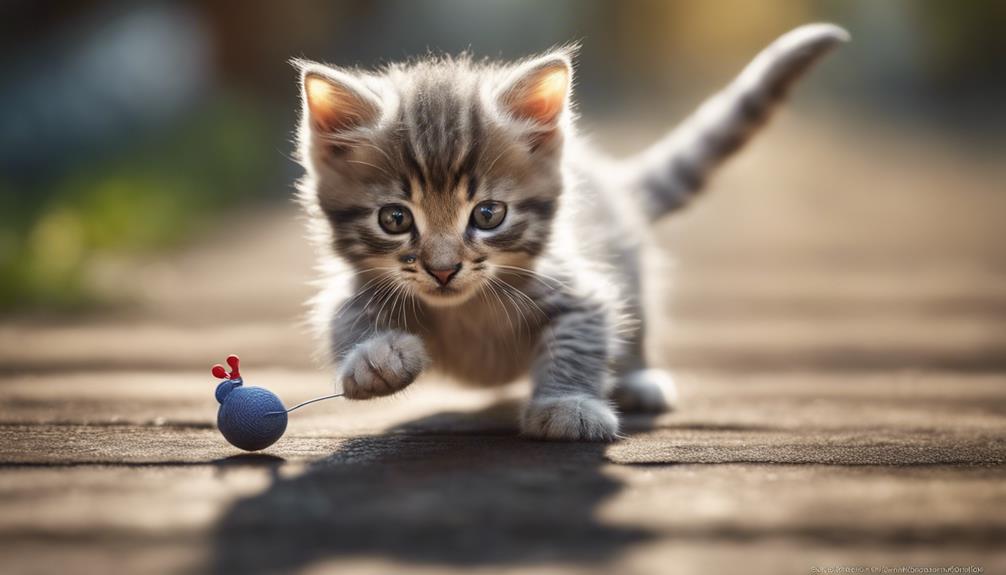
When selecting a name for your kitten, it's crucial to draw inspiration from their behavior. Observing characteristics like playfulness, affection, energy, curiosity, or adventurousness can lead you towards suitable names.
Naming From Quirks
Observing a kitten's unique behaviors and quirks provides valuable inspiration for choosing a fitting name that captures their individuality. When considering cat names based on personality traits, names like Pounce or Zoom can be perfect for an active and playful kitten that loves to run around and play.
Alternatively, if your kitten is more on the cuddly side, names like Snuggle or Cuddles can be a great match for their affectionate nature. Tailoring the name to reflect specific habits or preferences your kitten displays guarantees a name that truly resonates with their character.
Reflecting Temperament Traits
Reflecting a kitten's temperament traits through their name choice can provide insight into their behavior and character, enhancing the bond between pet and owner. When selecting a name for your feline friend, consider how their personality can be mirrored in their name. Here are some examples to guide you in choosing a name that reflects your kitten's unique temperament traits:
| Personality Trait | Name Suggestions |
|---|---|
| Energetic and mischievous | Rascal |
| Playful and curious | Whiskers |
| Regal and elegant | Princess |
| Affectionate and cuddly | Snuggles |
| Loves to follow you around | Shadow |
Easy Pronunciation
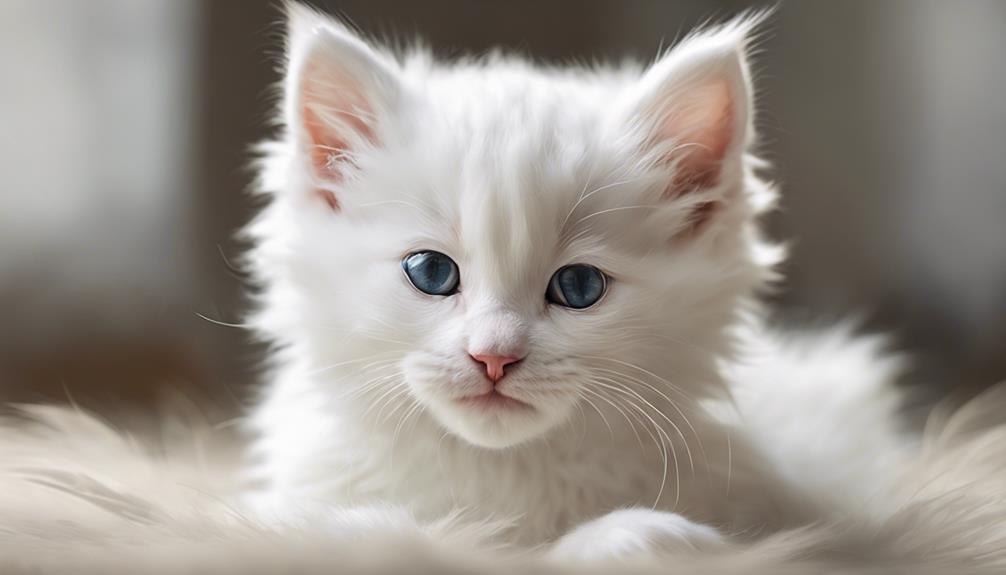
Considering the importance of clear communication between you and your kitten, opt for a name with easy pronunciation that both of you can effortlessly recognize. Simple names with clear and distinct sounds are ideal for your new cat.
Avoid complex or difficult names that might confuse your furry friend. Opt for a name that even young children or family members can easily say. A straightforward name not only fosters a strong bond between you and your kitten but also helps during training sessions.
When choosing a name, think about how it will sound when you call it out – a name that rolls off the tongue will make interactions smoother and more enjoyable. Remember, a name that's easy to pronounce isn't only practical but also enhances the relationship between you and your adorable feline companion.
Reflecting Individuality

We customize our kitten's name to highlight their unique characteristics and personality traits. When selecting cat names, it's crucial to contemplate what makes your kitten stand out.
If your feline friend is unusually friendly or shy, you might choose a name that mirrors these traits, like 'Sunny' for a sociable kitty or 'Whisper' for a more reserved one. For intelligent breeds, names like 'Brainy' or 'Einstein' can be appropriate choices to showcase their cleverness.
Reflecting individuality through a name can also entail emphasizing your kitten's quirks; a playful kitten could be named 'Rascal,' while a regal-looking one might suit the name 'Prince.' Remember, your kitten's name is a reflection of their identity, so select one that resonates with their uniqueness.
You can even draw inspiration from their appearance, such as naming an orange kitten 'Pumpkin' or a fluffy white kitten 'Snowball.' Each name has the ability to capture your kitten's essence and celebrate what makes them truly one of a kind.
Avoiding Complex Names

Choosing a simple name for your kitten can enhance their learning and responsiveness. When selecting a name for your feline friend, it's important to opt for something easy to remember and pronounce. Avoiding complex names with multiple syllables or difficult sounds can make training and communication much smoother for both you and your kitten. Here is a helpful table to guide you in choosing a straightforward name for your new pet:
| Easy to Remember Cat Names | Examples |
|---|---|
| Short and Sweet | Luna, Max, Bella |
| Single-Syllable Names | Milo, Rose, Jack |
| Common Words | Shadow, Whiskers, Lily |
| Soft Sounds | Daisy, Oliver, Peanut |
Joyful Name Selection

When naming your kitten, let the joy in your heart guide you to a name that resonates with happiness each time you call out to your furry companion. Choosing a name that brings a smile to your face can enhance the bond between you and your new pet. Incorporating favorite shows, movies, or interests into the naming process can add an extra layer of joy.
Consider associations like the month you welcomed your kitten into your family or names inspired by beloved artists. It's crucial to make sure that the selected name not only suits your kitten but also brings you delight every time you interact with them. Involving your family in the naming decision can also spread joy and create a shared connection with your pet.
Frequently Asked Questions
What Should I Name My New Kitten?
We're thrilled about your new kitten! Let's consider their personality traits and appearance for inspiration. Involving the family will create a special bond. Choose a name that brings joy and reflects their uniqueness.
What Is a Good Name for a Baby Kitten?
We think a good name for a baby kitten should reflect their unique personality. Short names like Luna or Milo are cute and easy for our feline friends to learn. It's important to choose a name that resonates with us and our kitten.
Is It OK to Rename a Kitten?
It's absolutely okay to rename a kitten! Cats can adapt to new names if introduced gradually. Keep the shelter-given name if familiar, but choose a new one with a similar sound if necessary. Make sure the new name is simple and frequently used.
What Names Do Cats Respond Better To?
We find that cats respond best to short, 1-2 syllable names with a vowel sound at the end. Double syllable names work well too. Avoid complex names that confuse. Unique names help in clear communication and prevent mix-ups.
Conclusion
Choosing a good name for your kitten is an important decision that reflects their personality and individuality. Consider factors like personality matching, easy pronunciation, and avoiding complex names to guarantee a joyful name selection process.
For example, when I named my kitten Luna, her playful and curious nature perfectly matched her name, bringing joy and harmony to our home. Taking the time to choose the right name for your furry friend can create a special bond that lasts a lifetime.
As our Editor-in-Chief, James plays a pivotal role in ensuring the quality and integrity of our content. With a keen eye for detail and a passion for storytelling, James oversees the editorial process here at A Place for Animals. With years of experience in content editing, James ensures that every piece of content meets our high standards of accuracy and clarity. Under James’ guidance, you can rest assured that the content you read is informative and impeccably crafted.
Dogs
The Importance of Choosing the Perfect Young Cat Name
Yearning to understand the significance of selecting the ideal young cat name? Unravel the secret to deepening your bond with your feline companion.

Choosing the perfect young cat name is essential for building a strong bond with your feline friend. Consider their personality traits and unique characteristics to find a name that resonates with them. Reflecting their personality not only enhances communication but also fosters a deeper connection. Testing different names through training can help you gauge their response and attention. The chosen name should reflect their individuality and strengthen your relationship. Select a name that captures their essence for effective communication and a more profound bond. Your young cat's name is more than just a label—it's a key to understanding and connecting with them on a deeper level.
Key Takeaways
- Reflect personality traits for a deeper bond.
- Unique names show individuality and connection.
- Test names for response and ease of learning.
- Choose names reflecting cat's essence and traits.
- Strengthen relationship with a meaningful name.
Factors to Consider When Naming a Young Cat
When picking a name for a young cat, consider their personality traits to find a fitting and unique name that reflects who they are. Selecting a name that resonates with your pet's individuality is crucial, capturing their essence in a single word.
Observing your cat's behavior and characteristics can provide valuable insights into their personality, aiding you in choosing a name that feels just right. Whether your cat is playful, curious, or affectionate, there's a perfect name out there waiting to be discovered.
Importance of Reflecting Cats Personality

Reflecting a young cat's personality through their name fosters a deeper connection between the owner and their furry companion. When selecting names for our feline friends, it's essential to take into account their unique personality traits.
Whether your cat is playful and mischievous or elegant and mysterious, the chosen name should capture these characteristics. For instance, a name like 'Whisker' might suit a curious and inquisitive cat, while 'Midnight' could be perfect for a sleek black cat.
By aligning the name with your cat's individuality, you not only strengthen the bond between you but also make communication and training more effective. This alignment also helps others understand and connect with your pet, as the name serves as a window into their world.
As a result, when Choosing A Name for your young cat, take the time to observe their unique qualities and select a name that resonates with their distinct personality.
Building a Bond Through Meaningful Names
Choosing a meaningful name for your young cat establishes a strong bond and connection between you and your pet. It's a great way to show your furry friend how special they're to you. When you choose a name that reflects your cat's unique personality traits or physical characteristics, you're not just giving them a label – you're giving them a sense of identity and individuality. It's important to give your young cat a name that resonates with both of you, creating a lasting reminder of the bond you share.
Consider a name that captures the essence of your unique cat, whether it's their playful nature, elegant demeanor, or quirky habits. This process can be a fun and rewarding experience, strengthening the relationship you have with your feline companion. By choosing a name that holds meaning for both you and your cat, you're laying the foundation for a strong and special connection that will continue to grow as your furry friend becomes a beloved member of your family.
Testing Names for Cats Response

Let's see how cats respond to different names through consistent training and positive reinforcement techniques. When selecting the perfect name for your new cat, it's crucial to ponder popular cat names that are easy to learn and respond to.
Opt for names with two syllables as they tend to be more effective in capturing your cat's attention. To help your feline friend associate their name with positive experiences, use their favorite food as a reward when they respond correctly.
Implementing simple commands like 'come here' along with their name can aid in faster learning. Additionally, incorporating friendly gestures and treats can reinforce name recognition and encourage your cat to respond promptly.
Conditioning your cat to come to a specific sound or gesture along with their name can also help in the learning process. By following these great tips, you can effectively test different names and find the one that resonates best with your furry companion.
Finding a Name That Resonates
We should consider selecting a name for our young cat that truly resonates with their unique personality and traits. Choosing a name that best suits your pet can create a strong connection between you and your feline companion. Great pet names aren't just labels; they're reflections of your cat's individuality.
When deciding on a name for your pet, take into account their appearance, behaviors, and preferences. Human names can sometimes be the perfect fit, capturing the essence of your cat's character. Testing out different names can help you discover which one resonates the most with your furry friend.
Frequently Asked Questions
Is It Important to Name a Cat?
Selecting a cat's name is vital as it helps build a strong connection and facilitates communication. It enables us to interact and look after them efficiently. Picking a suitable name for a young cat is a joyful process.
What Names Do Cats Respond Better To?
We've noticed cats respond better to higher pitches and shorter names for clarity and recognition. Using consistent nicknames helps them associate it with themselves. When calling your cat, choosing a clear, short name aids in acknowledgment and response.
Do Cats Care About Their Name?
We find that cats respond more to tone and familiarity than the actual name itself. Through repetition and positive reinforcement, we can train them to recognize and react to their names, making it a useful tool in communication.
What Is the Proper Name for a Baby Cat?
We believe a proper name for a baby cat should be easy to say and remember. Short names with 1-2 syllables work well. It's important for building a strong bond with your young feline companion.
Conclusion
To sum up, choosing the perfect name for your young cat is like planting a seed of connection that will blossom into a beautiful bond.
By considering their personality, testing responses, and finding a name that resonates, you're setting the foundation for a strong relationship filled with understanding and love.
Take the time to select a name that truly captures their essence, and watch as your feline companion responds with joy and affection.
As our Editor-in-Chief, James plays a pivotal role in ensuring the quality and integrity of our content. With a keen eye for detail and a passion for storytelling, James oversees the editorial process here at A Place for Animals. With years of experience in content editing, James ensures that every piece of content meets our high standards of accuracy and clarity. Under James’ guidance, you can rest assured that the content you read is informative and impeccably crafted.
Dogs
Calculating the Human Age Equivalent of a 3 Year Old Dog
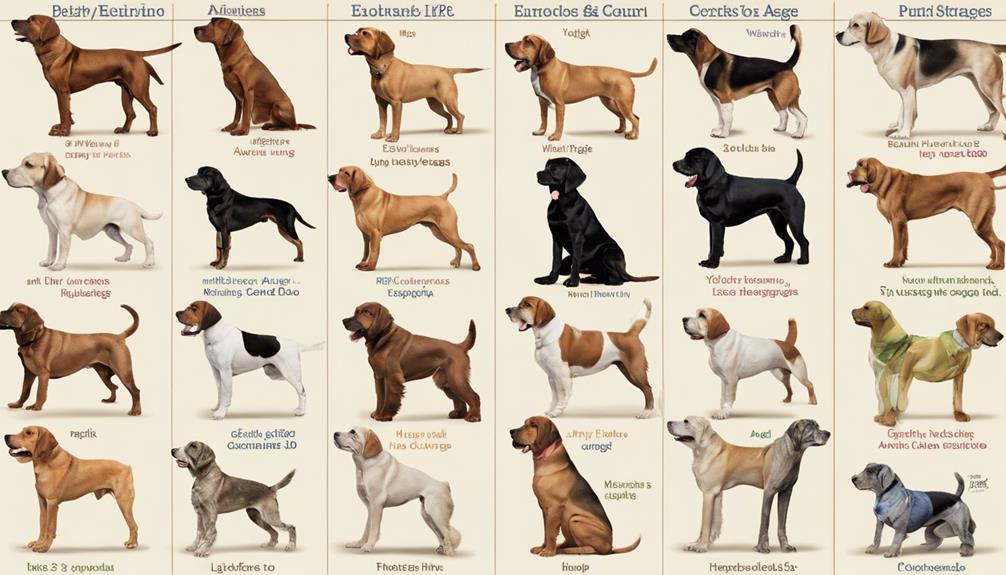
Calculating the human age equivalent of a 3-year-old dog depends on its breed size. Small dogs, like Chihuahuas, are middle-aged at 3 years. Medium-sized dogs age a bit faster. Large breeds are like early 40s humans at 3 years. Understanding this helps care for them better. Want to discover more insightful details about dog aging and how to care for your furry friend to extend their lifespan?
Key Takeaways
- Small dogs like Chihuahuas are middle-aged at 3 years due to their slower aging rate.
- Large breed dogs age quicker, resembling humans in their early 40s at 3 years.
- Breed-specific factors influence age equivalency calculations.
- Age multipliers range from 4.3 to 13.4 depending on the breed.
- Understanding breed and size considerations aids in accurate age estimation.
Factors Influencing Human Age Calculation for Dogs
Factors influencing the calculation of a dog's human age include their size and breed. Small dogs, such as Chihuahuas or Dachshunds, tend to age more slowly and live longer compared to larger breeds like Great Danes or Saint Bernards. This difference in aging is vital to take into account when determining the human age equivalent of a dog. Breed-specific factors also play a significant role in how dogs age. Different breeds have varying lifespans and health considerations that impact their rate of aging. Understanding these breed-specific factors is essential for accurately evaluating a dog's age in human years.
The American Veterinary Medical Association provides guidelines that offer a more precise method for calculating a dog's human age equivalent. By considering these guidelines and the unique characteristics of each breed, we can better understand how dogs age and tailor our care and attention to meet their specific needs. This knowledge empowers us to provide our furry companions with the best possible care as they grow older.
Breed and Size Considerations for Age Equivalency
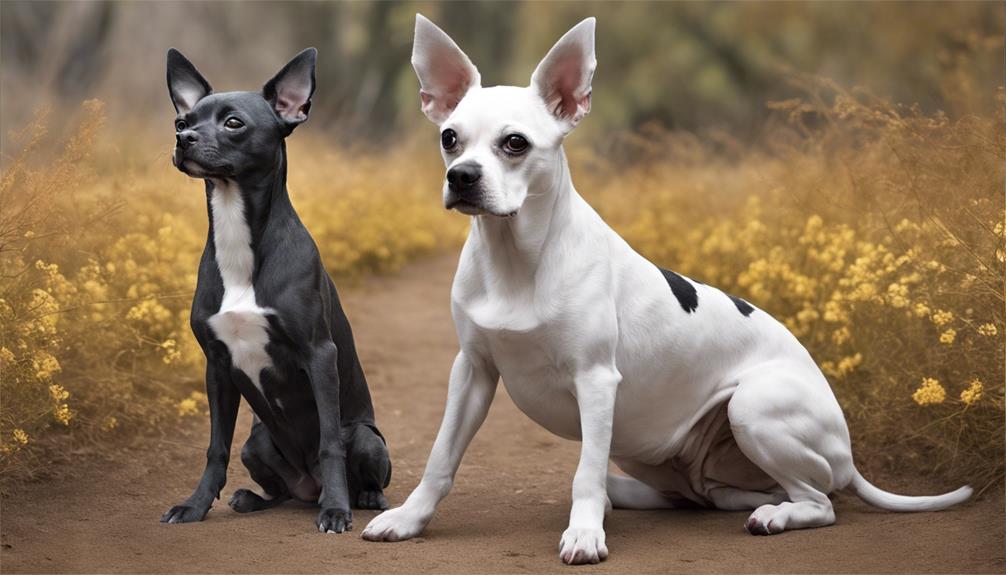
When determining a dog's age in human years, it's crucial to take into account the breed and size of the dog. Small breeds tend to age more slowly, which means a 3-year-old small dog might be younger in human years.
Conversely, larger breeds age faster, so a 3-year-old large dog could be closer to middle age in human years.
Breed Impact on Age
Considering a dog's breed and size is essential in determining their age equivalency in human years, with smaller breeds typically living longer than larger breeds. Small dogs like Chihuahuas, at 3 years old, may be akin to humans in their mid-30s, considered middle-aged.
On the other hand, medium-sized dogs of the same age might be more comparable to humans in their late 20s, aging slightly faster than their smaller counterparts. Large breed dogs, reaching 3 years old, are approaching middle age, reflecting humans in their early 40s due to their quicker aging process.
Understanding how breeds and sizes impact a dog's aging process is critical in ascertaining their human age equivalency at various life stages.
Size and Aging Correlation
In determining a dog's age equivalency in human years, the correlation between size and aging plays an important role, especially when considering breed-specific patterns. Small dogs like Chihuahuas are often classified as seniors around age 7, while larger breeds like Great Danes may reach senior status by 5 or 6 years old due to their quicker growth and development.
Larger dogs generally age faster than smaller ones, making them more prone to age-related health issues at an earlier stage in life. The aging process in dogs varies greatly based on their size and breed, with smaller dogs typically enjoying longer lifespans than larger breeds.
Understanding the relationship between a dog's size and aging is key in accurately determining the human age equivalent of a 3-year-old dog, taking into account breed-specific aging patterns.
Variability of Dog Aging Rates
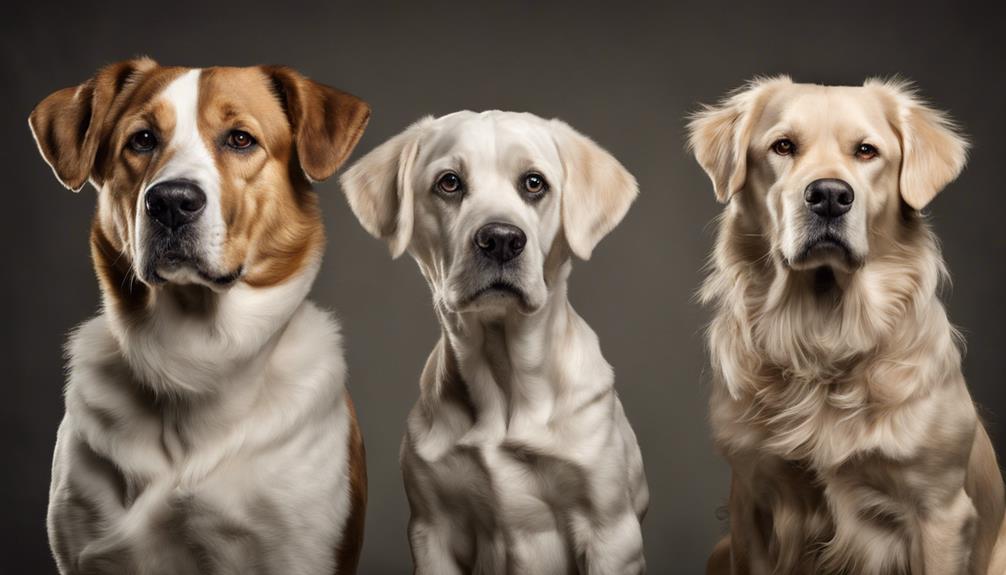
Understanding the variability in dog aging rates is essential for tailoring appropriate care and attention to dogs of different sizes and breeds to promote longevity and well-being. Different breeds of dogs age at varying rates, with smaller breeds generally aging slower than larger breeds. For instance, senior dogs in larger breeds may reach that status around 5-6 years old, while in smaller breeds, it's typically around 7 years. The UK Kennel Club suggests using an age multiplier to convert dog years to human years, with multipliers ranging from 4.3 to 13.4 depending on the breed. By considering these differences, we can better understand the aging process in our furry friends and provide them with the care they need at each life stage.
| Category | Small Breeds | Medium Breeds | Large Breeds |
|---|---|---|---|
| Senior Age | Around 7 | Around 8 | Around 9 |
| Age Multiplier | 4.3 | 7.5 | 13.4 |
Precision in Age Estimation Methods

When determining a dog's human age equivalent, precision is vital in understanding their true age. Comparing different age estimation methods can provide valuable insights into how each approach measures up.
Age Estimation Accuracy
Using a combination of factors like breed, size, and health history, age estimation methods for dogs aim to determine human age equivalents with precision. When it comes to age estimation accuracy, various techniques play an important role:
- DNA Methylation Studies: Advanced methods that analyze biological markers for more accurate human age equivalents in dogs.
- Physical Examinations: Veterinarians use thorough examinations to refine age estimates based on health indicators.
- Lifestyle Factors: Considering the dog's habits and environment helps in determining age more accurately.
- Tailored Care Plans: Precise age estimation is essential for creating personalized healthcare strategies to meet the dog's specific needs.
Method Comparison Insights
In comparing age estimation methods for dogs, precision plays a critical role in determining the human age equivalents accurately. Various factors, including size and breed, influence age estimation for dogs. To showcase the differences in age calculation methods, we present a comparison table below:
| Method | Human Age Equivalent for a 3-Year-Old Dog |
|---|---|
| Traditional (3 x 7) | 21 |
| AVMA Guidelines | 24 |
| UCSD Epigenetic Clock | 49 |
Understanding these different approaches helps in appreciating the complexity of determining a dog's age in human years accurately. By considering the nuances of size, breed, and scientific formulas like the UCSD epigenetic clock, we can gain a more precise insight into our furry friends' aging process.
Data Analysis Techniques
Data analysis techniques play a pivotal role in enhancing the precision of age estimation methods for dogs. When determining the human age equivalent of a dog, utilizing DNA methylation and other biological markers can provide accurate calculations. Precision in age estimation methods is essential for understanding dog aging patterns accurately.
Advanced statistical models and algorithms can greatly improve the accuracy of age conversion from dog years to human years. By incorporating multiple data sources and variables, the human age equivalent calculation for dogs can be refined further. These methods help guarantee that the age of a dog in human years is calculated with the highest level of accuracy possible.
Longevity and Exceptional Cases

Understanding the factors contributing to exceptional longevity in dogs can provide valuable insights for pet owners seeking to enhance their furry companions' well-being. Genetics, lifestyle factors, and proper healthcare play essential roles in determining a dog's lifespan. Some dogs, like Meg, a Jack Russell from Britain, have defied the odds and lived up to 25 years, which is equivalent to 113 dog years. These exceptional cases highlight the potential for dogs to live longer than the average lifespan with the right care. While not all dogs may reach such extreme ages, taking steps to guarantee their health and happiness can potentially extend their lifespan.
| Factors | Description |
|---|---|
| Genetics | Influence lifespan potential; certain breeds may have predispositions to longevity. |
| Lifestyle Factors | Diet, exercise, mental stimulation, and regular vet check-ups impact overall well-being. |
| Exceptional Cases | Dogs like Meg showcase the potential for pups to live well beyond their expected lifespan. |
Importance of Care and Lifestyle Factors
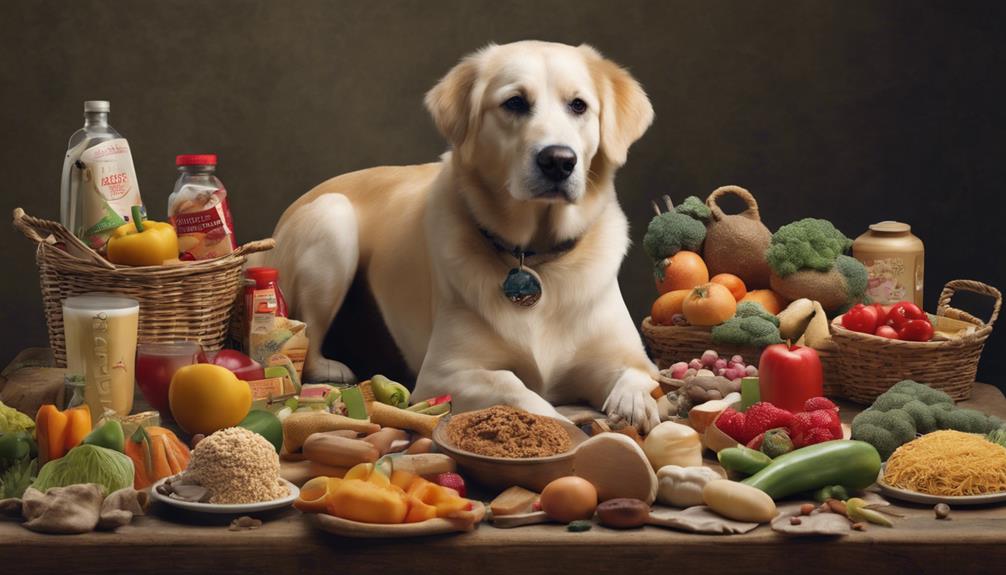
Proper care and lifestyle choices play a vital role in a 3-year-old dog's well-being.
A balanced diet is essential for healthy aging, while regular exercise can promote longevity.
Providing mental stimulation and affection can enhance the overall quality of life for a 3-year-old dog.
Diet Impacts Aging
Ensuring our 3-year-old dog receives a balanced and nutritious diet is crucial to supporting their health and vitality as they age. Here are some key points to keep in mind:
- A balanced diet rich in essential nutrients can positively impact your dog's aging process.
- High-quality food supports your dog's immune system, helping them stay healthy.
- Nutritious meals contribute to your dog's overall well-being and energy levels.
- Consulting a veterinarian for a customized diet plan tailored to your dog's needs is vital for their long-term health.
Exercise Promotes Longevity
Regular exercise plays an essential role in promoting longevity for dogs by maintaining muscle mass, joint health, and overall well-being. Keeping your furry friend active not only helps prevent obesity, a common risk factor for health issues, but also provides mental stimulation, reducing stress and anxiety.
Tailored exercise routines, based on factors like age, breed, and health condition, can greatly enhance your dog's quality of life and extend their lifespan. Engaging in interactive games, going for walks, having play sessions, and even agility training can keep your dog physically active, mentally sharp, and emotionally content as they age.
Mental Stimulation Enhances Well-Being
Shifting from physical well-being to mental health, involving a 3-year-old dog in stimulating activities like puzzles and interactive toys can greatly improve their overall quality of life. Here are four ways mental stimulation enhances a dog's well-being:
- Prevents Boredom: Engaging in activities and puzzles keeps your dog entertained and mentally sharp.
- Promotes Mental Agility: Training sessions and interactive toys help in developing cognitive skills and problem-solving abilities.
- Enhances Emotional Health: Regular exercise and social interactions contribute to a happier and more emotionally balanced dog.
- Improves Behavior: Enriching your dog's environment with new experiences can prevent behavioral issues and lead to a well-adjusted pet.
Enhancing Lifespan Through Health Practices

By prioritizing preventive care and healthy habits, we can greatly enhance a dog's lifespan. Regular vet check-ups and vaccinations are essential for maintaining your 3-year-old dog's health and promoting longevity.
Providing a balanced, age-appropriate diet tailored to their size is vital for their well-being. Engaging in regular exercise and playtime not only keeps them physically fit but also contributes to their mental health, leading to a longer life.
It's important to monitor their weight and body condition to prevent obesity, which can shorten their lifespan and lead to various health issues. Offering quality time, affection, and mental stimulation can significantly improve their overall well-being, enhancing their quality of life and potentially increasing their lifespan.
Notable Dog Age Calculation Guidelines
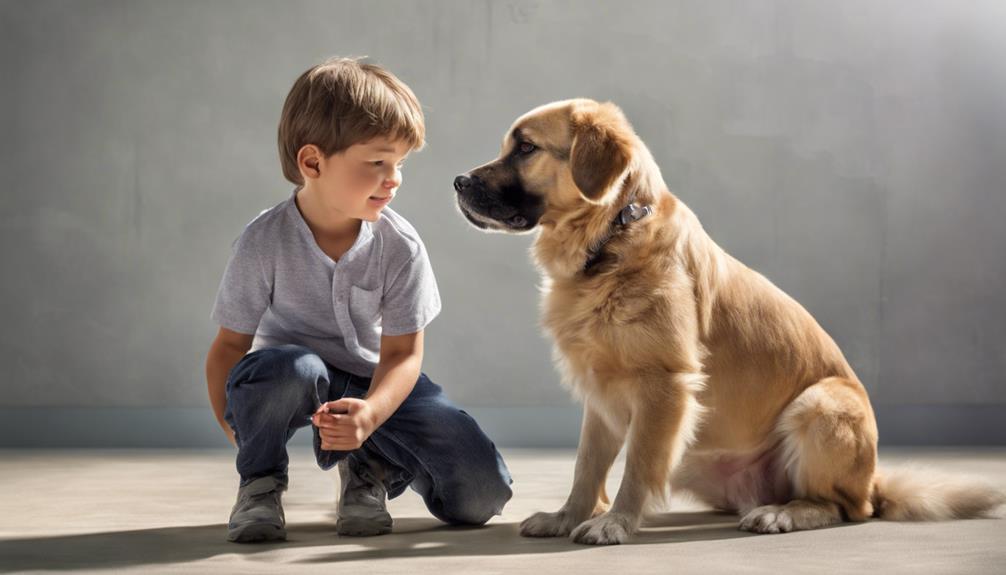
Understanding how to accurately calculate a dog's age in human years is essential for tailoring appropriate care and meeting their specific needs. When contemplating a dog's age, it's vital to keep in mind the specific breed, as different breeds age at varying rates. Factors such as size and breed play a significant role in the aging process of dogs, affecting their Human Age Equivalent. Providing appropriate care involves grasping these nuances to guarantee the well-being of our furry friends.
Here are some notable guidelines to ponder when calculating dog ages:
- Specific Breed: Different breeds age differently, so it's important to take into account the breed when determining a dog's age in human years.
- Aging Process: The aging process in dogs is influenced by factors such as size, breed, and individual health conditions.
- Size and Breed: Size and breed play a significant role in determining how a dog ages and what their Human Age Equivalent might be.
- Appropriate Care: Understanding the Human Age Equivalent of a dog is vital for providing appropriate care tailored to their specific needs.
Accuracy of Multiplying by Seven Myth

Let's debunk the myth of multiplying a dog's age by seven for determining their human equivalent. This common belief oversimplifies the aging process of our furry friends. The American Veterinary Medical Association (AVMA) offers a more accurate way to Convert Dog Years to human years, especially for medium-sized dogs. Below is a table comparing the traditional 7:1 ratio method with the AVMA's guidelines:
| Dog Age (Years) | Human Equivalent (Traditional 7:1) | Human Equivalent (AVMA Guidelines) |
|---|---|---|
| 1 | 7 | 15 |
| 2 | 14 | 24 |
| 3 | 21 | 29 |
| 4 | 28 | 34 |
| 5 | 35 | 39 |
As we can see, the AVMA's method provides a more precise calculation of a dog's age in human years. Understanding this difference allows us to better Calculate Dog Years and care for our furry companions based on their actual stage in life.
Insights From Britains Oldest Dog, Meg

Having lived to the remarkable age of 25, Meg, Britain's oldest dog, offers valuable insights into canine longevity. Here are some interesting points to ponder:
- Meg, a Jack Russell, surpassed the typical lifespan of her breed by many years, showing that old age in dogs can be much older than expected.
- When Meg was 3 years old, her equivalent human age was around 28 years, highlighting the difference in aging rates between dogs and humans.
- Studying dogs like Meg can provide important information on factors that contribute to their longevity, such as diet, exercise, genetics, and overall care.
- Meg's story challenges the conventional idea that dogs age seven times faster than humans, demonstrating that individual dogs can age at varying rates.
Meg's exceptional longevity serves as a reminder that old age in dogs isn't set in stone and can vary greatly depending on various factors.
Frequently Asked Questions
How Old Is a 3 Year Old Dog in Human Years?
We typically calculate a 3-year-old dog's age in human years using a traditional 7:1 ratio, suggesting they're in their late 20s or early 30s. However, various factors, like breed size and specific aging patterns, can shift this estimate.
For instance, larger breeds may age faster, making a 3-year-old large dog more comparable to a human in their mid-30s. Understanding these nuances helps gauge a 3-year-old dog's human age equivalent more accurately.
What Is the Formula for Dog Age to Human Age?
To convert dog age to human age accurately, we apply the formula:
human_age = 16ln(dog_age) + 31.
This formula adjusts for breed variations in aging, offering a more precise assessment than the traditional multiply by 7 method.
By considering individual breed characteristics, we can determine human age equivalents more accurately.
This method, based on DNA methylation research, provides insights into the aging process in dogs, enabling tailored care and health interventions for our furry companions.
How Do You Determine Dogs Age?
Determining a dog's age involves understanding factors like size, breed, and health.
We can estimate their age compared to humans by considering the general rule that the first year of a dog's life is akin to 15 human years, the second year to 9, and then each human year after that as 4-5 dog years.
This calculation helps us provide proper care and address age-related needs in our furry companions.
What Age Is a Dog Considered an Adult?
When a dog hits 2 years old, they're seen as adults, roughly equivalent to 24 human years. At this point, they've matured physically and mentally.
By 3 years old, most dogs have reached their peak in development, behaving steadily and showing their true personalities. They're full of energy and in the prime of their lives.
Conclusion
To sum up, calculating the human age equivalent of a 3-year-old dog involves various factors such as breed, size, and overall health. While the 'multiply by seven' myth is inaccurate, there are more precise methods for estimating a dog's age in human years.
By understanding these factors and taking proper care of our canine companions, we can help them live longer, healthier lives. So next time you look at your furry friend, remember they may be younger or older in human years than you think.
Dana is our Lead Content Writer, bringing a wealth of knowledge and expertise to our team. With a background deeply rooted in animal studies and a profound love for all creatures, Dana is dedicated to crafting engaging and informative content that resonates with our audience. With Dana at the helm, you can trust that our content is accurate and engaging, catering to the diverse interests of animal enthusiasts everywhere.
Dogs
Top 3 Corgi Name Generator Tools
Jump into the world of corgi naming with the top 3 tools that offer unique AI-generated names, perfect for your furry companion – find out which ones made the cut!
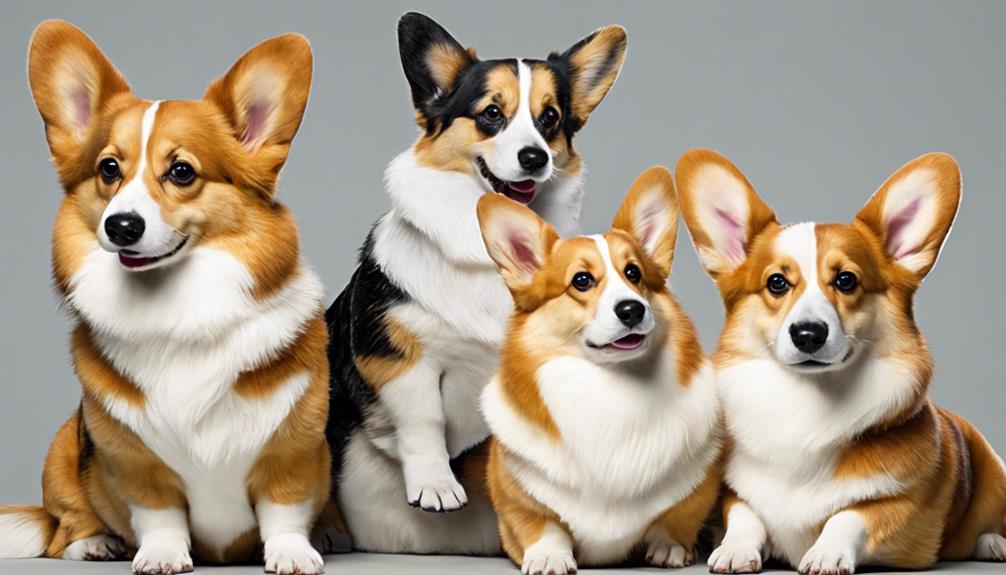
When picking from the top corgi name generator tools, consider ones offering a variety of unique, AI-generated names for your furry friend. Look for options that allow customization based on your corgi's traits and preferences. Our top picks include tools that streamline the naming process by providing instant, creative suggestions. Enhance your bonding experience with your corgi by using these tools to find the perfect name efficiently. Discover more about each of these top corgi name generators to guarantee a seamless and enjoyable naming journey.
Key Takeaways
- AI-powered algorithms for personalized name generation.
- Customizable search criteria based on corgi's traits.
- Instant results for a quick naming process.
- Guidance in finding the ideal name.
- Saves time and effort for bonding with your corgi.
Best Corgi Name Generator Tool
When looking for the top Corgi Name Generator Tool, explore this innovative and user-friendly online resource.
Our Corgi Name Generator simplifies the process of finding the perfect name for your furry friend. With a wide range of creative and personalized corgi names to choose from, you can guarantee your dog stands out with a unique identity.
The tool provides instant and unique name suggestions tailored specifically for corgis, saving you time and effort in brainstorming. What sets this Name Generator apart is the ability to customize the generated names by adding keywords or adjusting name styles, allowing you to personalize the suggestions to your preferences.
Additionally, enhance your corgi's branding with premium logos and visualize the chosen name for a professional brand image. Choosing a name for your Corgi has never been easier or more fun with our intuitive and efficient Corgi Name Generator.
Top-Rated Corgi Name Generator
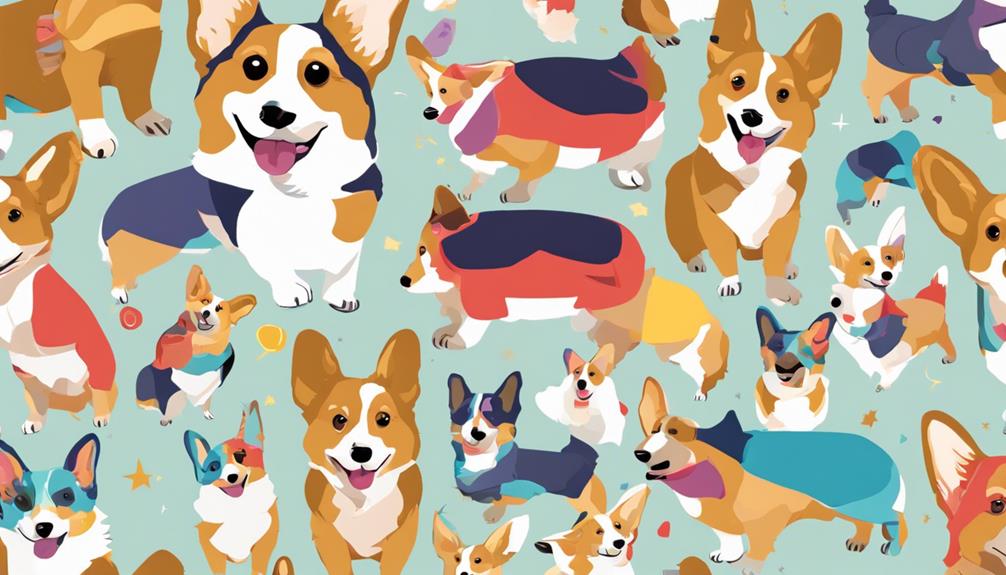
Among the plethora of Corgi Name Generator tools available, a select few stand out as the top-rated choices for finding the perfect name for your beloved corgi. When looking for the best corgi name generator, consider these top-rated features:
- Wide Selection: These top-rated generators offer a vast array of unique and creative corgi names to choose from, ensuring you find the most fitting name for your furry friend.
- AI-Powered Algorithms: Utilizing advanced technology, these generators use AI algorithms to generate innovative and personalized corgi names that match your pet's characteristics perfectly.
- Customizable Search Criteria: Users can easily tailor their search criteria to match their corgi's personality traits, making it simpler to find a name that resonates with their pup.
- Instant Results: These top-rated tools save time and effort by providing a range of name options instantly, making the naming process quick and enjoyable.
When you're looking to find the ideal name for your corgi, these top-rated corgi name generators are the perfect tools to guide you in your search.
Ultimate Corgi Name Generator
As we explore the world of corgi naming tools, the Ultimate Corgi Name Generator stands out as a comprehensive resource for creating the perfect moniker for your furry companion.
This tool offers a wide array of unique and creative name options tailored specifically for your new dog, ensuring that your newest family member receives a name that truly resonates with their personality and characteristics.
Users can customize the generated names based on preferences like length, style, and theme, making the process of finding the ideal name an enjoyable experience.
The Ultimate Corgi Name Generator simplifies the often challenging task of naming your corgi by providing instant, AI-powered suggestions, saving you valuable time and effort that can be better spent bonding with your four-legged friend.
Frequently Asked Questions
What Are Some Dog Tool Names?
We love exploring dog name generator tools. They offer a range of options based on breed, size, and personality. These tools inspire creativity and organization, making it easier to find the perfect name for our furry friends.
What Is the Most Popular Corgi Name?
Popular corgi names vary from classic to quirky. Names like Winston or Ein reflect their charm and smarts, while Molly or Waffles add a friendly and playful touch. Each name captures the corgi's unique personality.
How Do I Choose an AKC Name?
When selecting an AKC name, we take into account the character limit, show requirements, and steer clear of special characters. Titles like 'CH' or 'FC' can be included. Breeders utilize AKC names for official registration. It's essential to adhere to guidelines closely.
What Is the App for Choosing Dog Names?
We use an app with over 16,000 US pet names, including NYC licensed ones. It's not just for dogs. Generate up to 100 names at once. Simplifies choosing a name for your furry friend.
Conclusion
In the world of corgi naming, these top 3 tools are like golden retrievers fetching the perfect name for your furry companion.
Let the wagging tails and playful barks guide you towards finding the ideal moniker that captures your corgi's unique personality.
With these tools at your fingertips, you'll be on the fast track to naming success in no time.
So go forth and embrace the joy of naming your loyal corgi friend!
As our Editor-in-Chief, James plays a pivotal role in ensuring the quality and integrity of our content. With a keen eye for detail and a passion for storytelling, James oversees the editorial process here at A Place for Animals. With years of experience in content editing, James ensures that every piece of content meets our high standards of accuracy and clarity. Under James’ guidance, you can rest assured that the content you read is informative and impeccably crafted.
-

 Vetted2 months ago
Vetted2 months ago15 Best Cat Foods for Managing Hyperthyroidism – Vet Approved and Feline Friendly
-
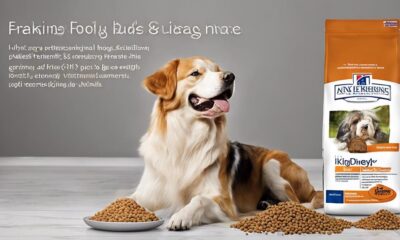
 Vetted2 months ago
Vetted2 months ago15 Best Dog Foods for Kidney Disease – Expert Recommendations for Your Pet's Health
-

 Vetted2 months ago
Vetted2 months ago15 Best Fresh Dog Food Delivery Services for Your Pup's Health and Happiness
-

 Animal Facts2 months ago
Animal Facts2 months agoSpring Animals: A Guide to Seasonal Wildlife
-

 Cats1 month ago
Cats1 month agoCat Weight Chart by Age: Kitten to Senior in Lbs
-

 Vetted2 months ago
Vetted2 months ago15 Best Wet Cat Foods for Older Cats to Keep Them Healthy and Happy
-

 Vetted2 months ago
Vetted2 months ago14 Best Homemade Dog Food Recipes Your Pup Will Love – Vet Approved & Nutritious
-

 Cats1 week ago
Cats1 week agoTop 5 Cat Breeders in Arkansas: A Guide




